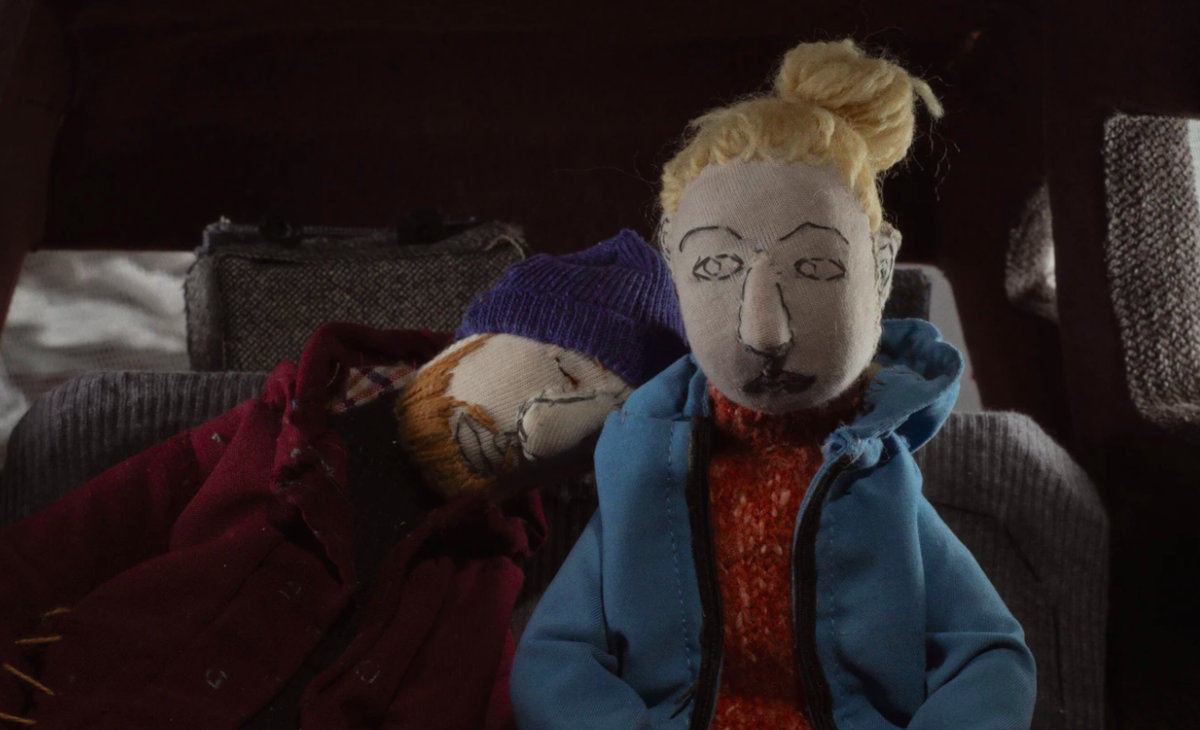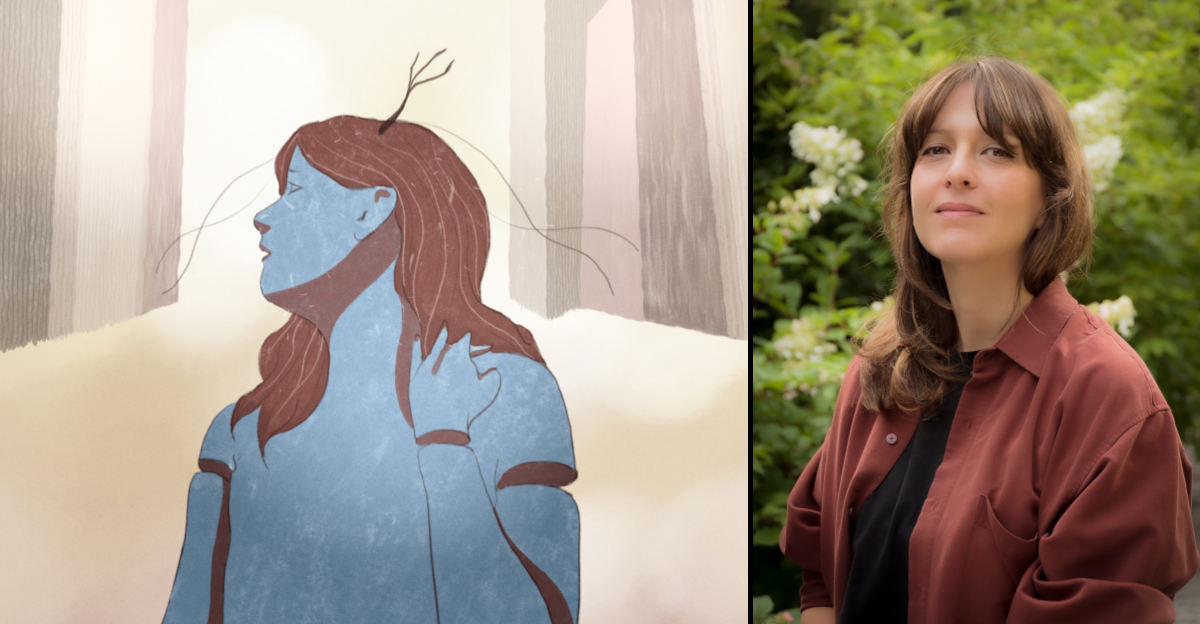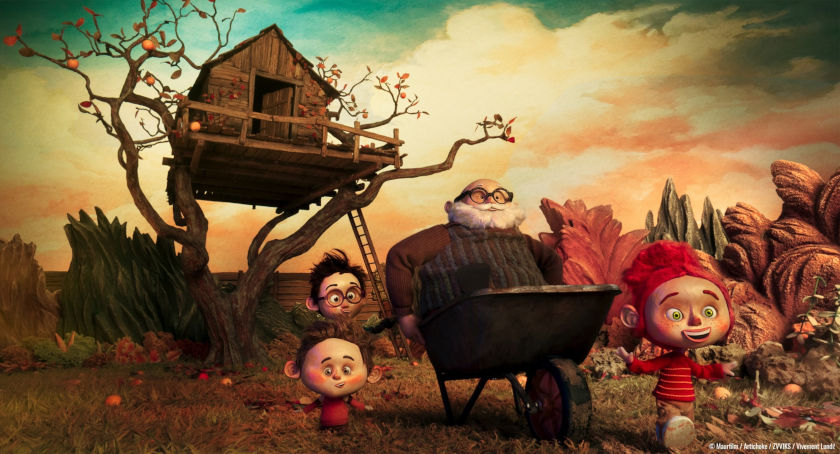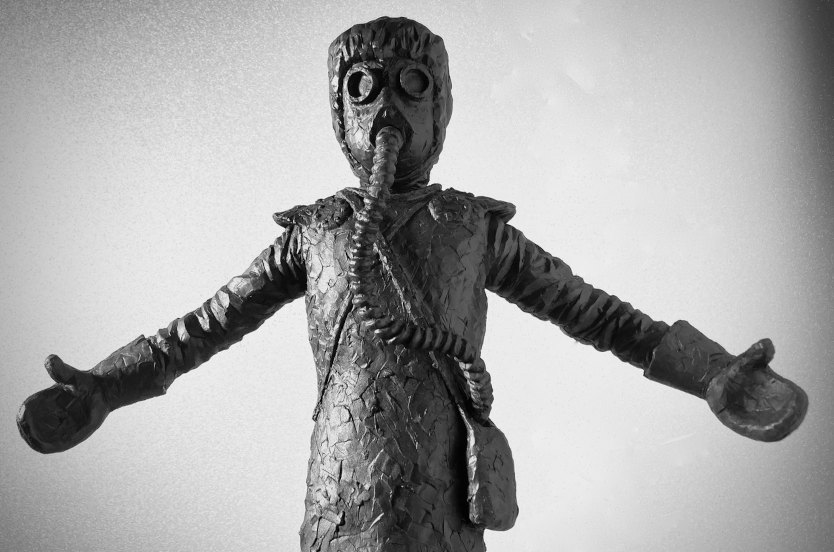To Talk About Trauma: Interview with Daria Kashcheeva on 'Electra'
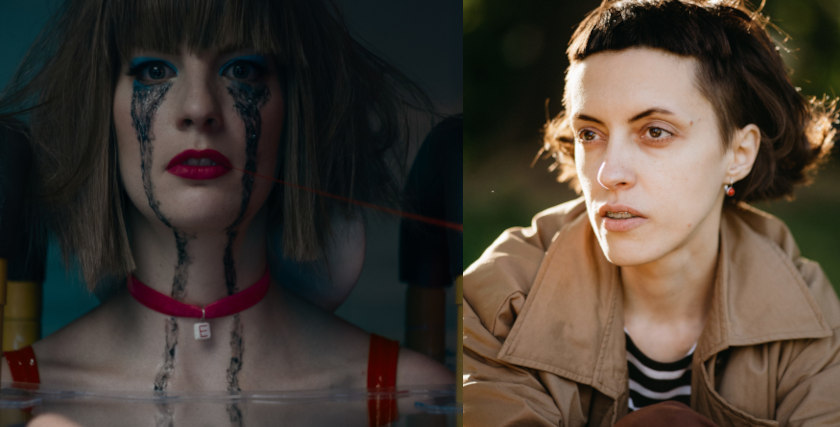
Czech-based animation director Daria Kashcheeva has managed to shake the indie animation world with even her first animation film; the stop-motion 'Daughter' (2019) was an instant hit with festival audiences and managed to get an Academy Award nomination -still being a student film (her Bachelor thesis) in FAMU Prague.
A lot of accolades accompanied the 'Daughter', and reviews focused both on the content and the live-action, hand-held camera style of the 15-minute film (and also a winner of the Student Academy Award).
Four years later, her even longer animated film, 'Electra', premieres at this year's Cannes Film Festival, in the festival's competitive section La Cinef (formerly La Cinéfondation). She was there before with the little-seen 'To Accept' (Nespresso Talents 2017). The 26-minute film, a hybrid of pixilation and live-action was first pitched (with the title 'Electra. A Poem') at the Animarkt Stop Motion Forum 2020, followed by the CEE Animation Forum 2021 presentation- but also in Cannes 2022 works in progress presentation. The production partners are now multi-national: MAUR Film and FAMU (Czech Republic), Artichoke (Slovakia), and Papy3D (France). Again, a nominally 'student' MA film; Kashcheeva now pursues an MA thesis at FAMU.
Electra rethinks her 10th birthday, mixing memories with dreams. Isolated in her fantasy world full of busty dolls, plastic men’s body parts, and dentist tools, she builds up her own relationships with her body and sexuality. Diving deeper into her childhood memories, Electra goes through the most painful memories to let her suppressed feelings come out - Film Synopsis
The father-daughter relationship dominated her earlier 'Daughter' film. Now, the daughter is all one, and Kashcheeva will use both the classical Greek tragedies (mainly Euripides) and Carl Jung (his famous Electra complex for the sexually uneasy relationship between father and daughter) to craft her most daring film to date.
"According to Jung, between the ages of three and 10, daughters could feel sexual feelings towards their father", Daria Kashcheeva explains. "If the mother-father relationships are healthy, this kind of sexualization period ends normally". But if the father is absent, a different process starts to unravel even after the teenage years. In 'Electra', we have two actresses, the adult Electra (Zuzana Částková), who opens the film in live-action; also, and the 10-year-old Electra (Marie Verner), who continues this surrealistic, highly theatrical poem in pixilation ("the first time I saw Marie, I knew she was Electra").
'Someone is missing' from Electra's 10-year-old birthday, and this is the script's inciting anything for everything that will follow, a film that includes life-size dolls, and a reference to the Barbie culture is inevitable. 'I started to work on the script during COVID', Kashcheeva notes. "It's quite a big issue how Barbie dolls influences several generations of women; I come from a poor family, and I had two Barbies -and it was super good. At the same time, they were quite a big example for me then of what female beauty is like".
Yet the film combines the Barbie culture with classical Greek tragedies; Kashcheeva retains all the Greek names (father Agamemnon, mother Clytemnestra) in her film -even though the film can be watched without knowing the actual tragedy that occurred in the Atreides family ('Electra' is further away from the serial killing genre). "Agamemnon, Electra's father gave her this Barbie doll. 'If you look like this, I will love you' ". The idea is followed faithfully in the 26-minute film.
"I really like to go deeper and explore different layers and it needs time", Kashcheeva will note on her film's running time. This is verified in the film's narrative style, moving back and forth, progressively revealing more past details. 'Each session is like a psychotherapeutic session; you go to the past, you are talking about the present, you're talking about your dreams and your fantasies. And then using all these mixtures and processing them, you could come to any kind of solution or come to any kind of healing through the process of this mixture". The highly theatrical production design, which puts actors into an experimental theatre setting, was also part of this need.
Watch The 'Electra' trailer:
"I have always dreamed of working with actors, and I always like watching animation where I see humans; I think I have more connection to the story and this kind of being. I want to work with the human body". Kashcheeva had a first chance of accomplishing this with her Nespresso Expressive Talents contest (and the film 'To Accept') and also during a fourth-year exercise on animating humans at FAMU. "I used this exercise as a test for my Master's film, and I made a teaser from the test. I learned how to use actors and objects around them".
Pixilation was conducted in twos (12 frames per second) in order to minimize body shaking that would result from a 24fps animating. But this created the further problem of how the film would be reconciled with the live-action counterpart ("camera movement doesn't work in 12fps"). Still, the need to have a unified, frail-looking (but not 'messy') bodily movement throughout the whole film persisted. "So, we invented a way of shooting everything five times slower. Actors were moving five times slower, cars went five times slower, motorbikes and everything, and the camera as well was very, very slow. And then we sped up the shot material 5 times faster in order to get this shaky kind of pixilated effect", she explains. So, a very stable system of camera in a crane helped capture the two primary live-action sequences placed in the present, conducted both in the Metro and the road tunnel, two scenes which could have been very fussy production-wise to shoot in pixilation.
Yet still, the task was enormous. It is the case that the film has garnered support from a three-nation funding scheme (Czech Film Fund, Pilsen Region, FILMTALENT Zlín Endowment Fund, ARTE France, Pictanovo, images in Hauts-de-France Hauts-de-France region, Centre national du cinéma et de l’image animée, Procirep and Angoa, Slovak Audiovisual Fund). But then again, we talk of animation, in which every frame matters -and the inherent difficulties of shooting 'Electra'.
"We had four and a half months of production", Kashcheeva explains, "and two sets at the same time. Apart from our main cinematographer (Tomáš Frkal), we had a constant need for assistants -sometimes we had help, others we couldn't afford to hire more people. Each day you have a set designer and builders working on these big sets, because they're normal-sized sets, just like in a live-action film. Each day, we have costume designers, makeup artists, and actors. Almost every day, I have actors on one of the two sets. So, it was a really big crew".
Which in turn translates into (as is the norm in independent animation) few people trying their hands on very different things at the same time. Yet Daria Kashcheeva has already prepared a very detailed animatic in terms of timing, cutting, and editing ("For each shot, I had really precise videos, which we uploaded to Dragonframe; it was a really good guide for animators to work with"). Yet, simultaneously, she realized her animators needed to have their own freedom to animate, simply because she had to be the directing hand in all sorts of ways between the two sets. But people were willing to alleviate any worries ("When we started, I felt this kind of synergy, that everybody inspires each other; I arrived at the set and I got energy from e.g. the set designer or any other crew member").
It might even be safe to say that the post-production of the film was the less stressful part. Lucas Verreman was hired to do the music, and he worked on the film for quite a long period of time. And, in principle with the theatrical influences of the film, every effect needed to be visible. "We tried to make everything on camera, and avoid green screen as much as possible". A fact that stretched production, but relieved the post-production process.
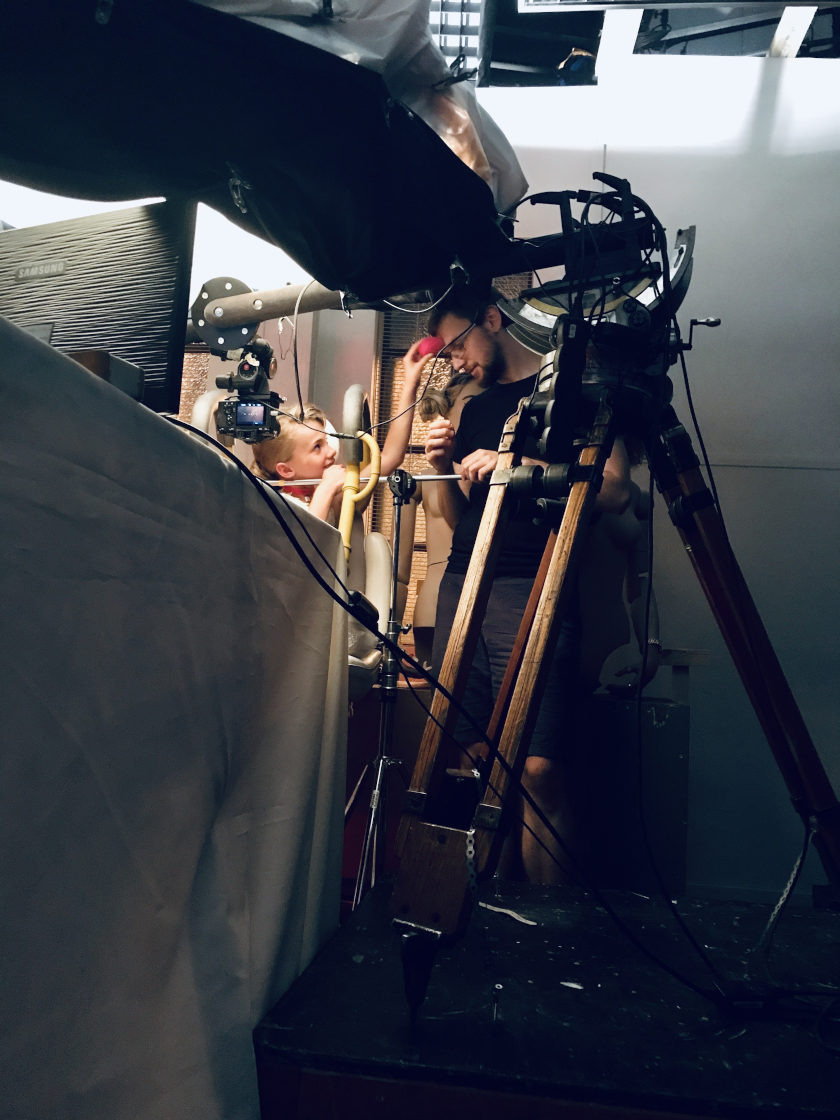
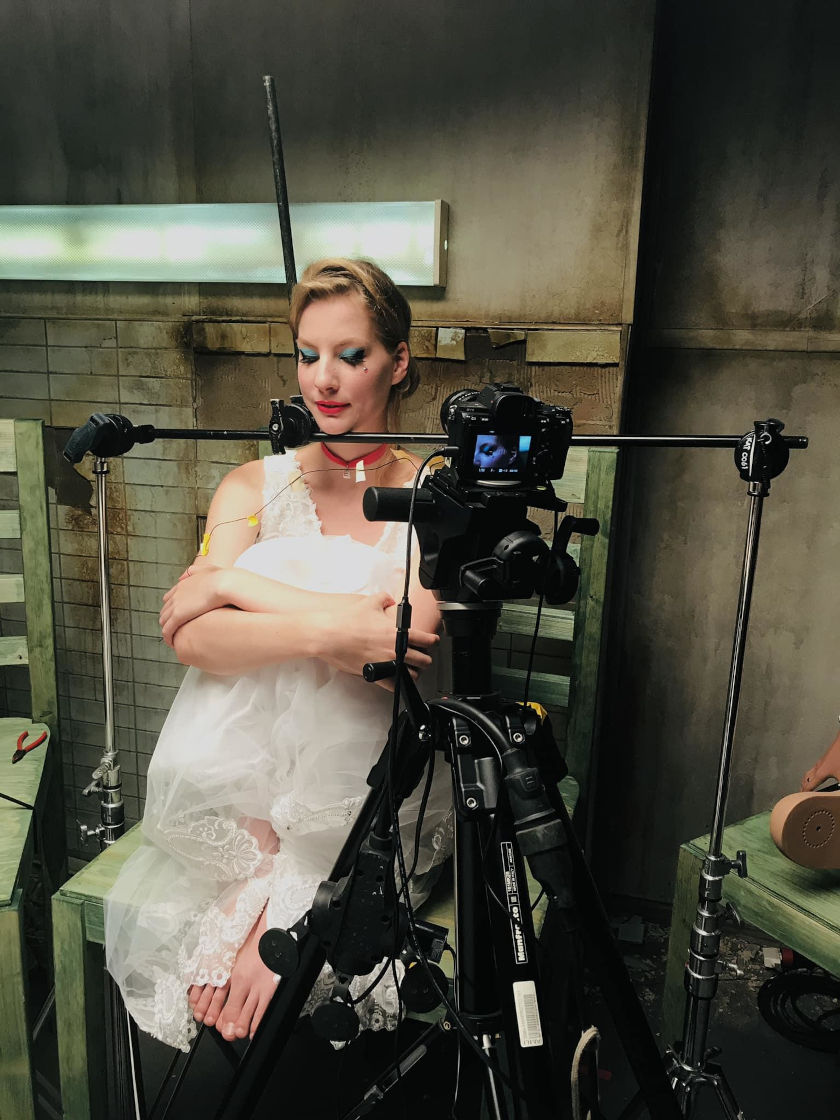
'Electra' has this group feeling with its so many characters and dolls inscribed from the start -and here again the association with the Greek chorus, the eternal commentator on the character's actions, is brought forward. "I decided I needed these Barbie dolls to act as a Greek chorus; they talked, instead of Electra in this group therapy scene. They were explaining her feelings, talking about her memories'.
Cinematography again evokes the harsh, intense theater lighting. "I explained Tomáš Frkal (my FAMU classmate, one year senior) what I wanted about theatrical symbolism, and then I gave him a lot of freedom. He did his own work, but I think it was a perfect match between the director and cinematographer".
What about sex? The film has its own juicy elements (strawberries for once), yet Kashcheeva will warn the voyeurs that "it's a lot about feelings of sex, not sex itself". She insists that subliminal cultural messages have already done their work, so no need to pick up sexual marks consciously; they have already been ascribed to our cultural DNA -like the Barbie dolls.
But what she definitely wanted to explore was the notion of trauma. She even went back to read Euripide's version of the Electra myth; in that version, her mother Clytemnestra marries her daughter to a farmer, and Electra is resigned to a sexless life. And every day Electra went to her father's Agamemnon grave and cried, pulling out her hair.
"I felt this is really a very modern thing, this kind of self-harming, self-destruction. Trauma has become a big topic in our society, and I really like that it is out of the shadows. Five to ten years ago, people didn't talk so much about trauma. Maybe it is also my own experiences. As a child and as a teenager, it wasn't appropriate to talk about your traumas and about your bad feelings. Maybe also because of getting older, and also because society is more open to talking about these kinds of problematic topics".
Still, she insists that the absence of the Father (unlike 'Daughter') is only incidental in 'Electra'. " 'Electra' is tougher, and it's rougher. And for me, it's more about the relationship with the mother, and between women in general, and how they influence each other; also about the relationship with your own body and your trauma (the absence of the father). Yet, for me, 'Electra' is not about the father, it's about Electra".
Her own FAMU thesis on the 'shadow mother' archetype -a theoretical piece taking into account its cinematic/cinematographic incarnations in our visual culture- seems to complete her exploration of family traumas at a time in her personal and creative process when questions of motherhood (and the social pressure accumulated) start coming in.
In the meantime, her Cannes film premiere was a dream come true, even though she states she will never think of potential festival placements when writing a story. At the same time, Kashcheeva gets inspiration from all kinds of festivals and life outside the studio feedback ("You need to soak inspiration from life as a person as well, not just as a filmmaker").
But the Cannes film festival, being one of the top film festivals around, has another echo as well. "I hope that festivals and viewers would not perceive this film as just an animated film. This is just a movie, and animation is just a technique". We've heard this animation is not a genre thing before (and Kashcheeva is not shy in repeating it); yet, when it comes from an indie animation filmmaker who doesn't shy away from handling difficult and risque topics in practice (instead of just envisioning about them), somehow it rings more true. And you bet she means it.
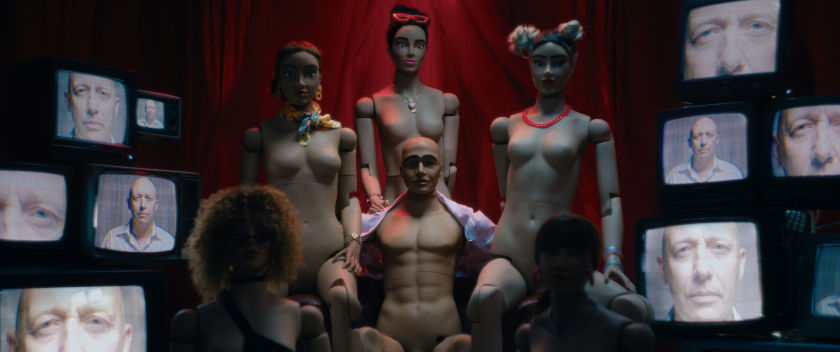
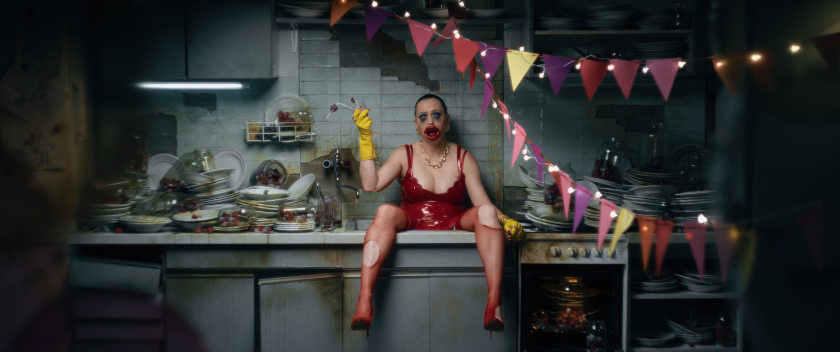
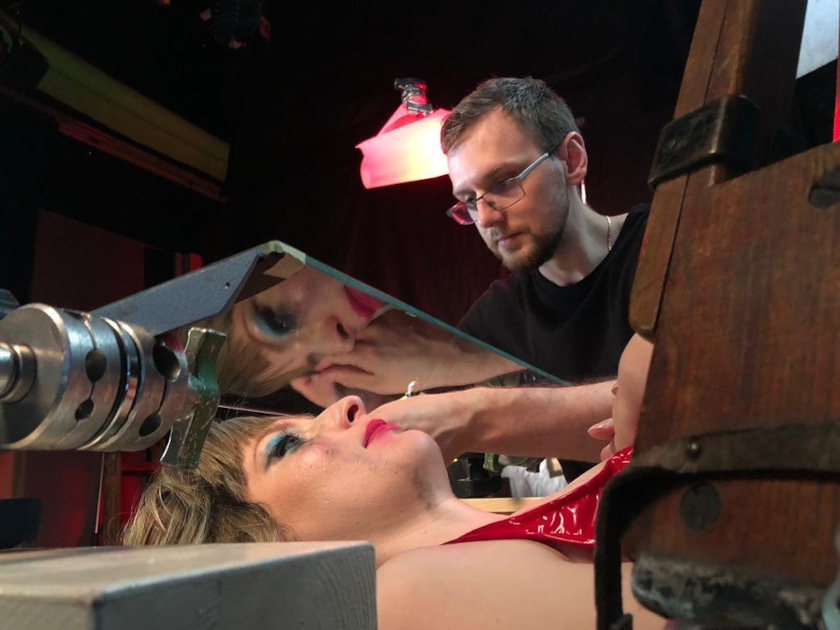
'Electra' by Daria Kashcheeva will have its world premiere at the Cannes Film Festival, on 24 May 2023.




